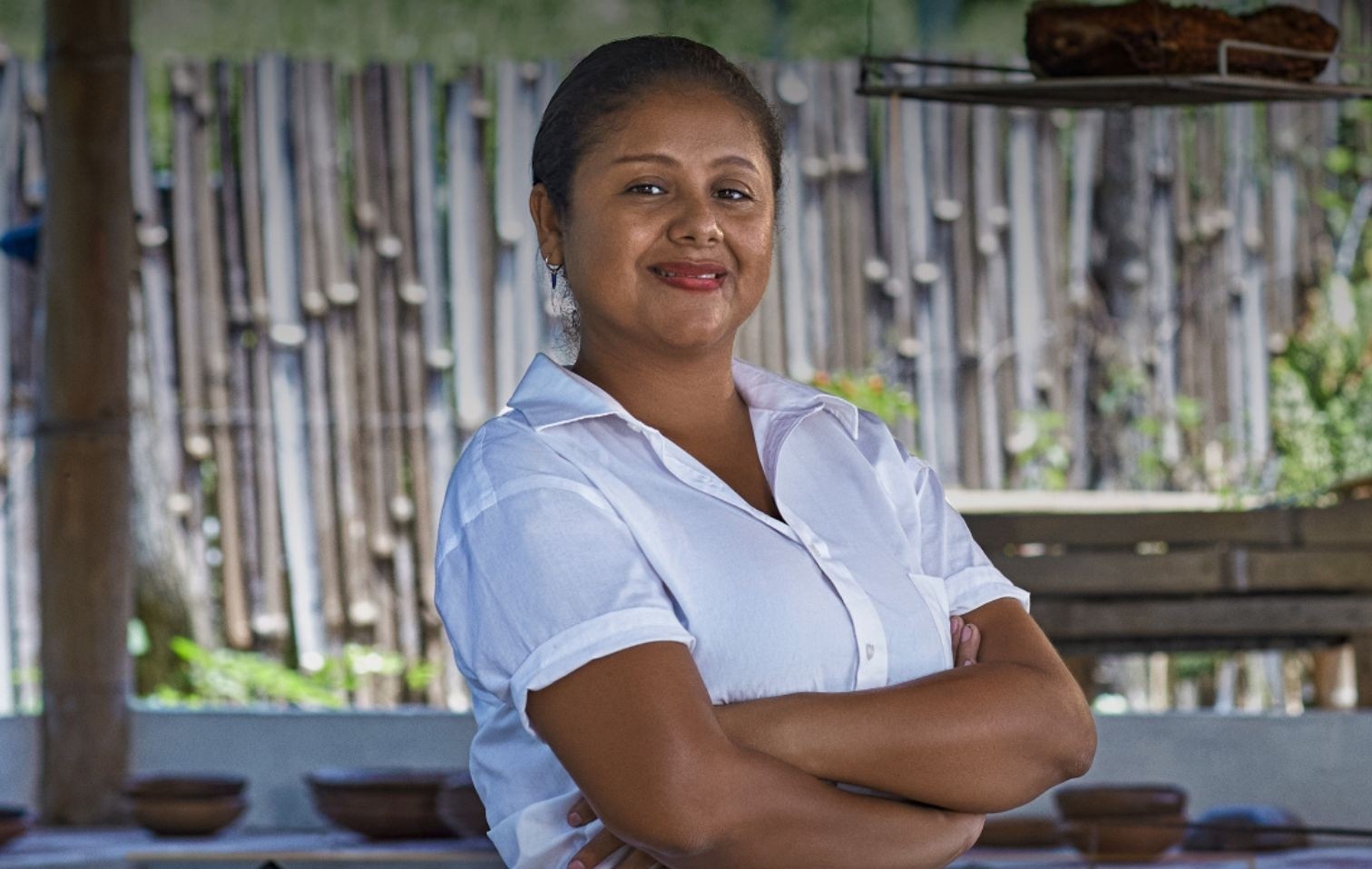Seleny Bermúdez, owner of a countryside restaurant on Ecuador's coast near San Vicente, makes customers pay the bill at the time of booking.
The story
Seleny is a traditional establishment near San Vicente (Manabí), on Ecuador's coast. The business takes its name from its owner, Seleny Bermúdez: a cook since childhood, the granddaughter of a cook, and the daughter of a professional cook. She is married to the owner of a seafood restaurant in Bahia, a nearby tourist spot. At its opening, the place didn't even resemble a restaurant: a one-story white house with a porch running along the main façade, on a plot just over a thousand square meters. No sign next to the door indicating the presence of the business.
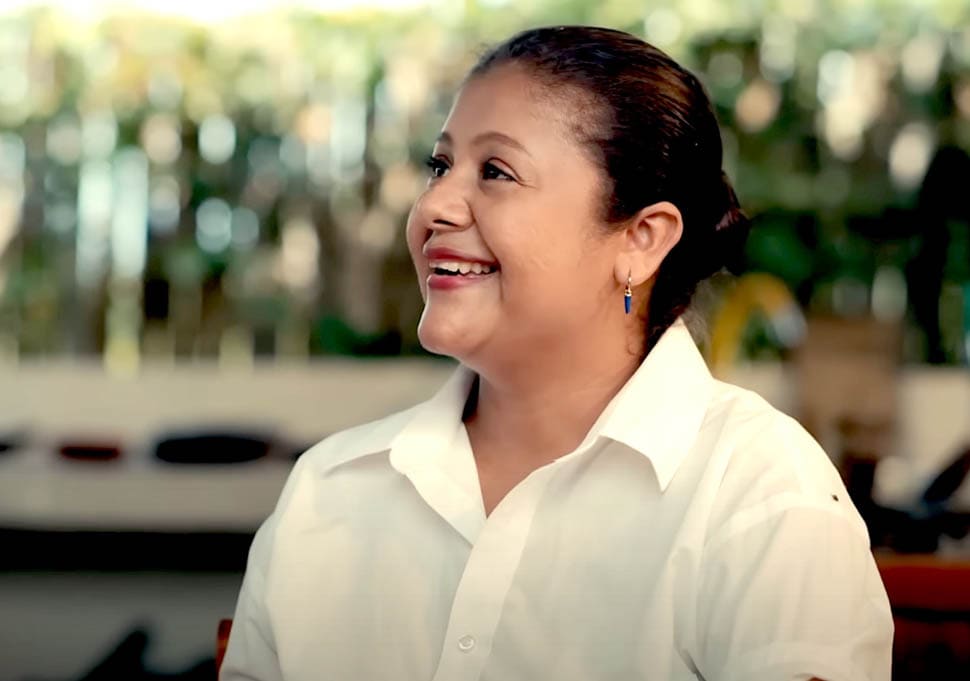
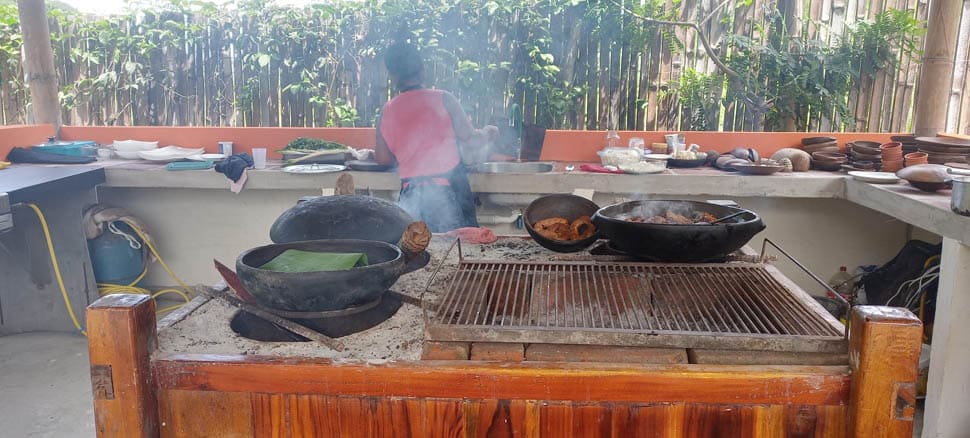
Seleny used to cook on Saturdays and Sundays in her oven in Manabí and served fifteen or twenty customers at the tables set up on the veranda. She inherited the largest table from her grandmother, while the others came from her husband's seafood restaurant on Bahia's beach. The restroom was that of the house, facing the living room. Four daily-paid employees and a menu of six or seven dishes that changed every weekend, with ribs and stew as staples. The loyal clientele booked to secure a table and mainly came from nearby Bahía or from Chone and Pedernales, even farther away. Her cuisine showcased techniques learned during her time in a nearby culinary school. Refinement in some purees, salads of sprouts and fresh herbs adorning the plates, traditional flavors, and a clean, clear, and courageous outlook.
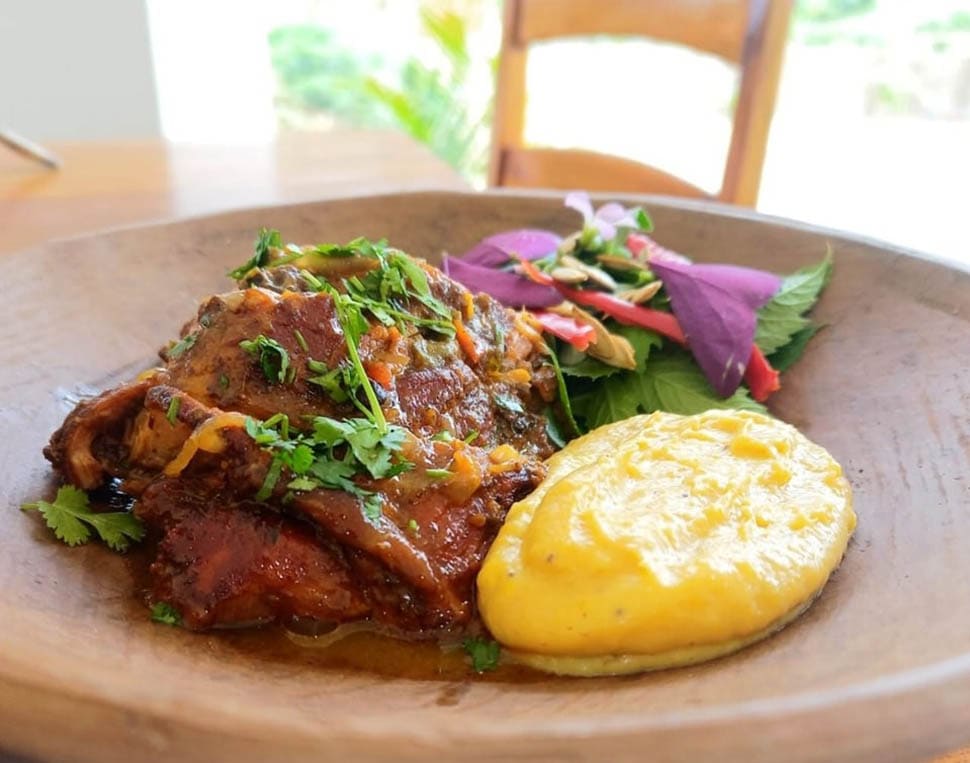
However, Seleny Bermúdez decided to grow her business. Today, there's a large wooden sign with the restaurant's name covering the entrance door. The tables have left the house's porch to be placed under sunshades in a garden made fertile and lively by the rain. A covered bar has been erected on the opposite side of the property, and a separate hut houses the restrooms. Seleny has become an independent establishment from Seleny Bermudez's house and her husband's restaurant in Bahia. Now, she serves on Fridays, Saturdays, and Sundays in two shifts and has gone from 15 or 20 customers per weekend to a staggering 70.
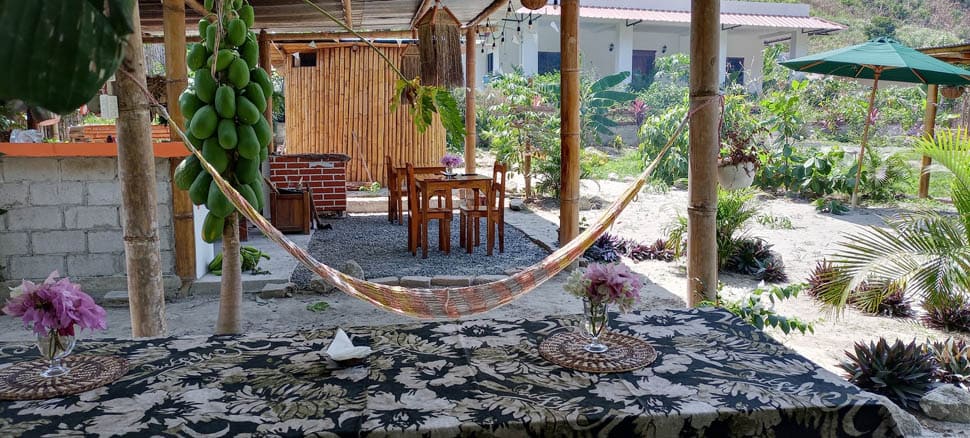
Furthermore, all customers are required to pay at the time of booking (a move no other restaurant in Ecuador dares to make). "Customers understand this choice, and we can't risk reserving space for people who don't show up, wasting time and money," she explains to 7 Canibales. But how does the operation work? Once a table is booked through a WhatsApp message, the guest receives the menu in response, chooses what they'll eat, and sends their request to the restaurant in advance. Payment is then made through a bank transfer, and the amount rarely exceeds $25 per person (we're talking about a restaurant with still "affordable" prices).
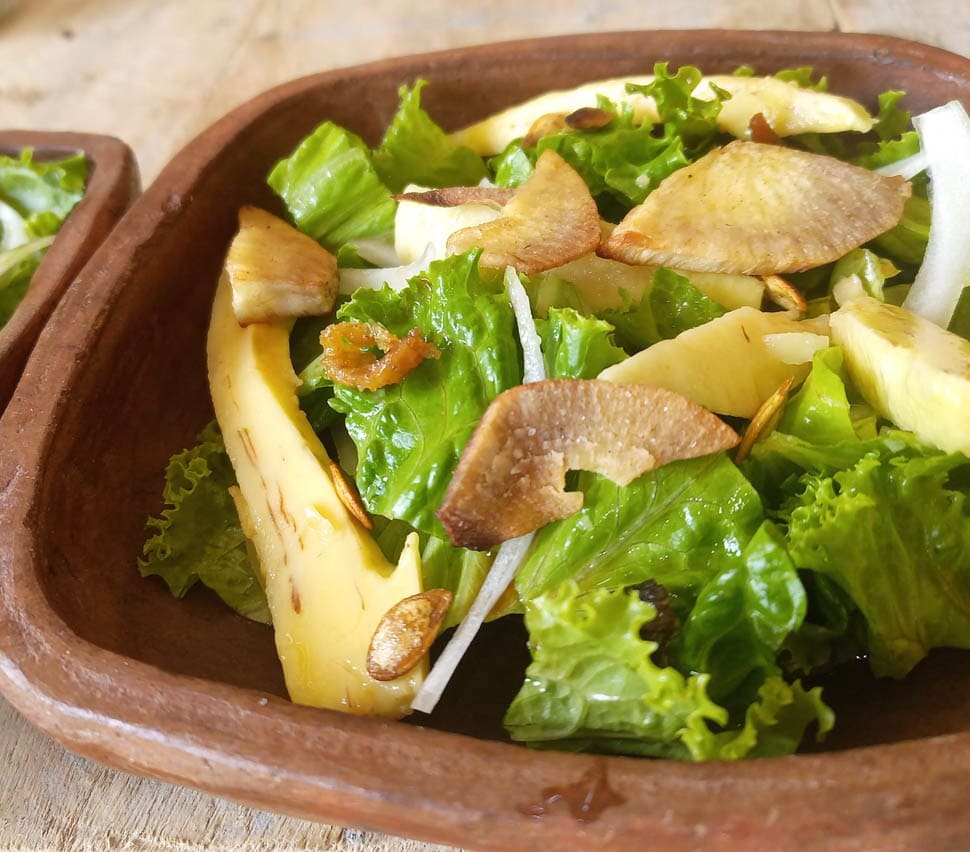
A lesson for the many Latin American restaurateurs who complain about no-show phenomena but fear losing customers if they're forced to take a deposit. Seleny Bermúdez demonstrates every weekend that her choice lies more in the quality of the cuisine than in how payment is managed. This business women's confidence in what she does, leaves no room for doubt.
